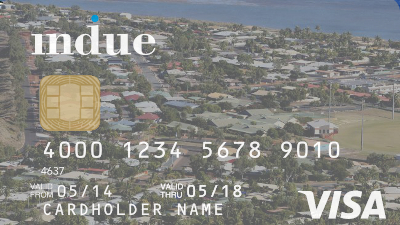Card scheme studied
 A new study finds the cashless debit card scheme and other compulsory welfare income management does more harm than good.
A new study finds the cashless debit card scheme and other compulsory welfare income management does more harm than good.
The new report has “uncovered an overwhelming number of negative experiences” stemming from the card, including feelings of “stigma, shame and frustration” as well as more practical issues like cardholders not having enough cash for essential items.
“Our research illustrates that the empirical case for continuing with the current policy settings on [compulsory income management] is weak,” the study says.
“Our research is certainly not the first to suggest these set of policy measures require a fundamental rethink.”
The government is looking to expand the use of cashless welfare cards - which quarantine a large portion of a recipient’s payment onto a card that cannot be used to buy alcohol, tobacco or gamble - into the Northern Territory.
Professor Greg Marston from the University of Queensland says some people who volunteered for income management said they had benefited from the policy, but most compulsory participants found it “harmful”.
“The majority of people didn’t have a problem with spending or budgeting, what they had a problem with was inadequate income support payments,” Dr Marston told reporters.
“In fact, most of the people we spoke with were very good at budgeting, they just didn’t have enough money to cover all their expenses.”
The study was based on 114 in-depth interviews with participants in the income management trial sites of Ceduna (South Australia) and Hinkler (Queensland), as well as Playford (SA) and Shepparton (Victoria), where a similar BasicsCard is used.
The study found 76 per cent of participants did not have enough cash to support their needs.
“School excursions are cash only,” said one respondent.
“The fair and Christmas parade activities are predominantly cash only. I have four children and 20 per cent doesn’t get us far.”
A total of 84 per cent of survey respondents said they had experienced stigma and shame while using the card.
“When you started talking to people, they would be visibly upset, recalling incidents where they’ve been called out for being on the cards and the way in which they hide the cards when they’re making transactions in shops,” Dr Marston said.
Participants said their cards had been declined at certain businesses, payment transfer problems meant bills went unpaid, and some had even encountered fees, despite the card being “fee free”, such as retailers charging a surcharge for EFTPOS payments.
The report found a “minority of positive accounts about how [income management] had sharpened thinking around budgeting”, generally from recipients who had admitted issues with overspending on items like alcohol.
“We don’t discount the place for a voluntary income management scheme and think that one of the reforms the government could make is to continue with a voluntary scheme,” Dr Marston said.
“But we really don’t see the value in continuing with a compulsory scheme.”
The Federal Government has commissioned its own study of the scheme, to be conducted by the University of Adelaide, which is expected later this year.








 Print
Print